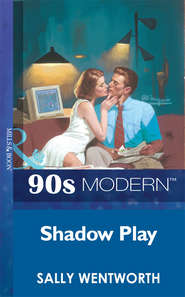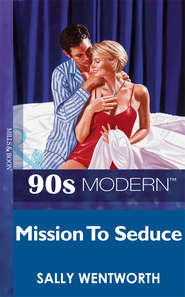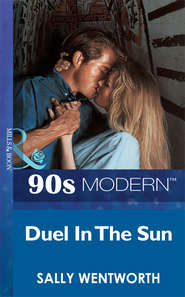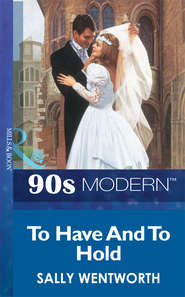По всем вопросам обращайтесь на: info@litportal.ru
(©) 2003-2024.
✖
A Very Public Affair
Автор
Год написания книги
2018
Настройки чтения
Размер шрифта
Высота строк
Поля
Closing the door, she looked apprehensively round, expecting any moment to have someone come up and demand to know what she was doing there. But the hall, with its black and white chequered floor, was empty. Fleetingly Clare noticed that it held the weirdest furniture and ornaments she’d ever seen, but then she saw an open door at the end of the passage from which came the smell of something cooking—a rich, savoury smell that had her through the door and into the kitchen in two seconds flat.
The delicious smell came from a large pan that simmered on the range. Broth? Stew? Soup? Hardly able to control the shaking eagerness of her hands, Clare found a bowl and spooned a large helping into it. She was so starved that she had eaten three helpings before she even bothered to look about her. The kitchen was large, well-lit, and beautifully warm. Again the furniture seemed different—it wasn’t just square and utilitarian, there were curves and flowing lines, and the chairs round the table had very high backs, high enough to lean her head against. There was a big dresser against one wall and on its shelves was lots of china in unusual shapes and in bright, bold colours: orange, yellow and vivid blue. The vibrant colours added to the warmth and welcome of the room, and brought a smile to her pale cheeks.
She glanced down at the bowl she’d been using and guiltily went to look in the pan. It was only a quarter full now. Clare gulped, wondering if she’d eaten most of the food intended for a whole family. She began to wonder, too, where the car driver had got to—but just then heard a door closing somewhere, and then rapid footsteps coming down the stairs. Nervously she went out into the hall.
Jack saw her as he came round the bend in the stairs, and stopped short in surprise. He had hardly taken her in before and was too full of shock over his father to do so now. All he knew was that the girl was a worry, an inconvenience he definitely didn’t want, especially now. Annoyance making his voice harsh, he said, ‘I told you to wait in the car.’
‘It was cold.’
He saw that she was still wearing the anorak, that it was dirty and stained, as were the jeans that had made him think at first that she was a boy. Jack’s nose wrinkled a little in distaste as he came down into the hall. ‘When did you run away?’
It was impossible to deny that she was a runaway, but Clare couldn’t see why he had to know, so she didn’t answer.
Jack sighed. ‘Have you at least got a name?’
She hesitated, then said, ‘It’s Clare.’
He was surprised, expecting her—if she’d told him at all—to have a far more common name. But perhaps she’d made it up. Deciding that she had, his face hardened. ‘Clare what?’ he demanded brusquely.
Not liking his tone, Clare’s chin came up a little. ‘Smith,’ she said shortly.
His eyes went to her face at that, and registered a pair of defiant hazel eyes. With an angry exclamation he went past her into the kitchen. ‘You’re going to have to say who you are some time, you know. If not to me, then to the police.’ Noticing the bowl on the table, he said wryly, ‘I see you made yourself at home.’
‘I’m sorry. I was hungry.’
He glanced in the pan, then said, ‘You may as well finish it off.’
Clare didn’t argue, immediately coming to fill her bowl again, but she managed to say, ‘Don’t you want any? It’s very good.’
‘No. I’ll just make myself some coffee.’ He gave her an assessing look, surprised by the educated tones of her voice. He’d expected her to be from a different background. ‘How old are you?’
‘Twenty-two,’ Clare lied.
Jack gave a short laugh. ‘Do you really expect me to believe that?’ He had picked up the kettle but turned with it in his hands to look at her. She was, he realised, very thin and pale, and there were dark shadows round her eyes. She looked like a Victorian waif, thrown out into the snow. Roughly he said, ‘You look about fourteen.’
‘I’m not!’ Clare said indignantly. ‘I’m twenty-two.’ She caught his eyebrows rising disbelievingly. ‘Well—twenty, anyway.’ But that was still a lie because she was only just nineteen.
She took her bowl to the table and a few minutes later he came to sit opposite with his mug of coffee. ‘You,’ Jack said shortly, ‘are a damn nuisance. My father is upstairs and he’s...’ He hesitated and found that he was unable to say ‘dying,’ so said instead, ‘He’s very ill, and I can’t leave him. So I’ll have to phone the nearest police station and ask them to come and collect you.’ He saw her fingers tighten on the spoon, but she didn’t speak or look at him. ‘Of course,’ he went on, ‘it would make things a whole lot easier if you’d tell me who you are so that your parents could come instead. I’m sure they must be terribly worried about you and—’
‘I haven’t any parents,’ Clare said shortly. Jack looked at her set face, wondering if she was lying again. ‘Well, there must be someone who—’
‘There isn’t.’
He became exasperated. ‘Look, I haven’t got time to play games. It’s your parents, guardian, or whatever—or the police. Which is it to be?’
Clare raised a strained face to look at him. ‘The police won’t want to know. I’m over-age and I have the right to lead whatever kind of life I want, wherever I want. They can’t make me go back.’
‘Well, at least you’ve admitted that there is somewhere for you to go back to,’ Jack pounced. He stood up, fretting to get back to his father’s side. ‘And you’re certainly not staying here.’
Going out to the car, he brought in his suitcase and overcoat. And his mobile phone, knowing that his father had never allowed a phone to be installed in the house—that or a television set. Dumping his case on the floor in the hall, Jack went into his father’s book-lined study and called the number that Mrs Murray had left for him. There was some delay, but eventually he was connected with the local doctor. The doctor went into much greater detail but in the end the news was just the same: his father was dying; there was nothing more they could do for him.
‘He knows; he made me tell him when I wanted him to go into hospital,’ the doctor told Jack. ‘But he said he wanted to die in his own home.’
‘Is he in pain?’
‘No. The medication I’ve left for him will remedy that. It’s just a matter of time.’
His voice thin and strangled, not sounding at all like his own, Jack said, ‘How long?’
‘It’s hard to say. A few days. Perhaps a week. I’ll come as often as I can, but I’ve a flu epidemic on my hands. Will you be staying with him, or do you want me to try and get a nurse?’
‘No, that won’t be necessary; I’ll be here as long as he needs me.’
He gave the doctor his mobile number then rang off. For a long moment he just sat staring at the wall, then roused himself and called the local police. They could do nothing about the girl today, they said when he explained the position. Half their men were down with the flu. They advised him to just send her on her way.
‘It’s snowing outside,’ Jack pointed out.
He could almost hear the shrug in the policeman’s voice. ‘Unless you want to bring charges against her for breaking into your car, there’s not a lot we can do except try and persuade her to go home. Has she given you her name? We could look on the missing-persons file and see if we can find an address for her.’
With inner anger, Jack told them to just come and collect the girl as soon as possible.
Going back into the kitchen, he found Clare washing out the now empty pan. She had taken off the anorak but it was impossible to tell what sort of figure she had as she seemed to be wearing several layers of sweaters. She turned her smudged, green-flecked eyes to look at him apprehensively. At any other time Jack might have felt some sympathy, if not pity for her. But not now; his thoughts were too full of the days ahead and taking care of his father.
‘You’ll have to stay here until tomorrow,’ he said abruptly. ‘The police can’t come for you until the morning.’
Clare relaxed a little, but then thought that maybe her troubles weren’t over—she would be alone here with this man. But no, almost at once she realised that she had nothing to fear. He was too much preoccupied with his sick father to even think about her in that way.
‘Come with me and I’ll show you where you can sleep.’ She followed him up the stairs. The banister rails were in that same flowing style, like graceful lilies. When they reached the corridor at the top he pointed out his father’s room. ‘I’ll take the one next door.’ He opened another door further down. ‘I suppose you’d better have this room. You’ll have to make the bed up. There’s blankets and things in that cupboard on the landing. And the bathroom’s over there.’
He turned to go to his father’s room, but Clare said quickly, ‘Please—can I have a bath?’
‘Yes, of course.’ He looked surprised that she’d asked.
‘And—and you know my name, but I don’t know yours.’
He gave a curt laugh. ‘I know the name you’ve chosen to tell me, you mean.’
Having slept in the car for several hours, and feeling full of good food, warm for the first time in weeks, and knowing that she had somewhere to stay for the night, Clare was able to say lightly, ‘A new life deserves a new name.’
His left eyebrow rose. ‘Smith? Surely you could do better than that?’
She smiled a little and he saw with surprise that there was a trace of beauty in her thin features. Somehow this made him angrier, and he said harshly, ‘My name’s Straker, Jack Straker. Look, I may be stuck with you till tomorrow but I shall expect you to keep out of the way. I haven’t got time to worry about you. Understand?’
Her face flushed at the obvious rebuff and she said stiffly, ‘Yes. I’m sorry.’
He nodded and went on his way.
Jack’s father might have been anti-telephones but he had utilised modem technology to take care of his creature comforts; the house was centrally heated and there was a very efficient plumbing and water-heating system. Clare must have stayed in the bath for over a couple of hours, washing her hair, absolutely wallowing in the pleasure of soaking in all that lovely hot water.











